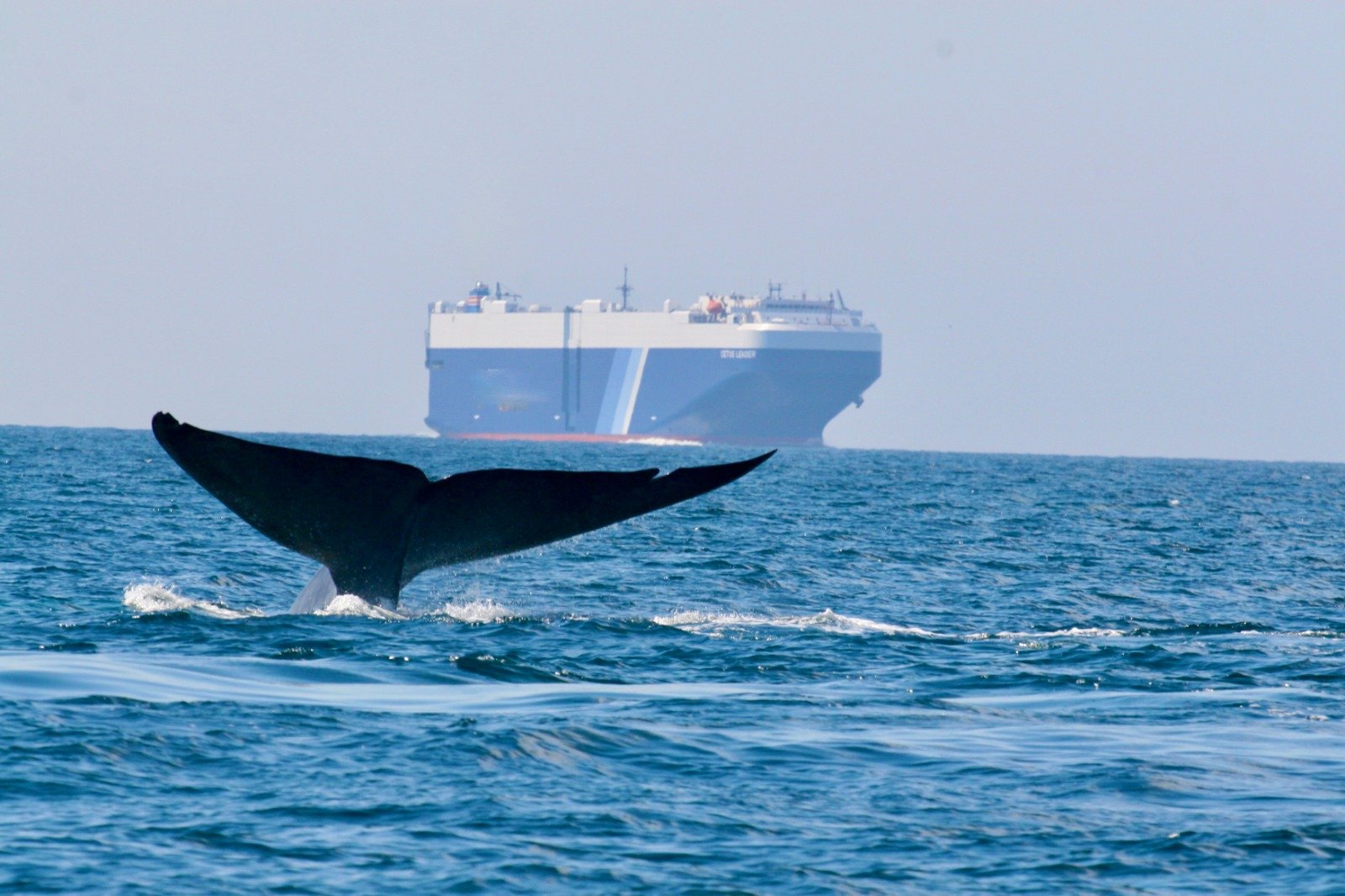Shipping takes action to protect endangered whale populations

This summer, the German shipping association (VDR) announced that it will encourage its members to change their shipping routes to protect endangered sperm whale populations in the Mediterranean and Indian ocean.
Pressure has been mounting from a coalition of NGOs, including OceanCare and the International Fund for Animal Welfare (IFAW), for shipping to make small changes to its practices to protect marine life, especially modifying shipping routes. The coalition welcomed the decision saying that it urges “all other shipping companies and shipping associations to follow the lead of VDR”.
Christian Naegeli, Marine and Environment advisor for VDR, said the decision to protect whale populations was an easy one for the organisation. “When we were contacted by the NGO coalition including OceanCare and IFAW, we realised we could recommend modifying existing shipping routes to avoid all known hotspots of whale activity. In both cases [in the Mediterranean and around Sri Lanka], the routes would be moved approximately 10 nautical miles south. Naturally, this makes journeys slightly longer, but for long-distance voyages these differences are marginal”. After receiving formal approval from their members, these recommendations quickly became official VDR policy.
According to a WWF report, whale deaths in maritime related accidents are difficult to estimate and are often chronically underreported, but some projections argue that 10-20% of whale deaths are caused by fatal ship strikes.
Sharon Livermore, Marine Conservation Program Director at IFAW told ICS: “Threats to marine life have grown dramatically with the increasing size, speed and number of ships transiting our global ocean” especially in regards to “underwater noise pollution and collisions with animals (known as ‘ship strikes’)”.
Livermore argued that shipowners have a responsibility to protect underwater life both legally and ethically. She also suggested that even small changes could dramatically reduce harm for whales, saying that “Scientific research indicates that if the speeds of the global shipping fleet were to reduce by around 10% on average, we would see around a 40% reduction in underwater noise from shipping and a 50% reduction in the risk of collisions with whales. This is an easy-to-achieve solution without the need for drastic change.”
The Mediterranean Shipping Company (MSC) has become the largest shipping company to change their shipping lanes in the Mediterranean and around Sri Lanka to avoid known areas of whale activity. In a press release, Stefania Lallai, Vice President of Sustainability at MSC, said “As a global leader in container shipping and logistics, we have a responsibility to ensure that our cargo operations make a positive impact, reflecting our longstanding commitment to conserving and protecting the ocean and marine wildlife”
The International Maritime Organisation has been working with lawmakers and professional associations, including ICS, to update their guidelines on the protection of whales. As of yet, guidelines established in 2009 are still in effect.
In recent years the impact of ship induced underwater radiated noise on marine mammals has also been of concern, and ICS technical director Chris Waddington highlights the close linkage between the measures that ship owners are taking to meet IMO’s Green House Gas (GHG) regulations and their unintended beneficial effect on noise. Many of these focus on improving the water flow around the hull and the flow into the propeller. With the Energy Efficiency Existing Ship Index (EEXI) due to come into effect on 1st January 2023, most ship owners will comply by reducing vessel speeds. This will also reduce the pressure differential across propellers, and the cumulative effect will be to reduce propeller cavitation, this being the biggest source of ship induced noise. The GHG regulations are progressively being tightened, with additional regulations under development. Although not intended, a spin-off from this basket of measures will be ships that are less disturbing for marine mammals.
Related content

Can shipping capitalise on the green finance surge?

Could 40% of global containership traffic be fully battery powered by 2030?

Evolving EU sanctions keep ship owners on alert
